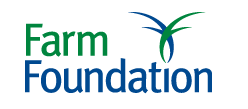 Previously, we talked about how USDA officials are concerned about how possible budget cuts will affect their ability to keep providing the timely, accurate reports on which so many farmers depend. And they’re not the only ones concerned. In our continuing series looking at the recent Farm Foundation webinar on data collection, we hear from Paul Hughes of Nestle Purina PetCare, who makes a baseball analogy about just how important USDA is.
Previously, we talked about how USDA officials are concerned about how possible budget cuts will affect their ability to keep providing the timely, accurate reports on which so many farmers depend. And they’re not the only ones concerned. In our continuing series looking at the recent Farm Foundation webinar on data collection, we hear from Paul Hughes of Nestle Purina PetCare, who makes a baseball analogy about just how important USDA is.
 “The USDA is the global unbiased umpire of the grains and oilseeds markets,” Hughes told those listening to the hour-long webinar. He went on to cite the example of Don Denkinger, the major league baseball umpire who admittedly made a bad call (especially if you are a St. Louis Cardinals fan) in the 1985 World Series and possibly cost the Cardinals a championship that year (but Kansas City Royals fans might dispute that). He said in the game of commodity markets, USDA is looked upon to give good, unbiased information and sometimes only gets attention, just like Denkinger, when the reports are controversial or unexpected.
“The USDA is the global unbiased umpire of the grains and oilseeds markets,” Hughes told those listening to the hour-long webinar. He went on to cite the example of Don Denkinger, the major league baseball umpire who admittedly made a bad call (especially if you are a St. Louis Cardinals fan) in the 1985 World Series and possibly cost the Cardinals a championship that year (but Kansas City Royals fans might dispute that). He said in the game of commodity markets, USDA is looked upon to give good, unbiased information and sometimes only gets attention, just like Denkinger, when the reports are controversial or unexpected.
Hughes said it comes down to Economics 101: having equal information for all parties. He worries that if USDA is not able to provide these reports (due to possible budget cuts) equally to all market participants, then that information might only come from parties with vested interests in the outcomes. He cited the case of Indonesian palm oil, the most commonly consumed vegetable oil in the world. That country produces half of the world’s palm oil supply, but provides the world with no data on production stocks or consumption. “What this does is leave the market ripe for all sorts of manipulations by those with the best independent information.”
Hughes said USDA levels the playing field for all producers, especially the small ones. And he says this unbiased information must be preserved.
You can here more of what Hughes had to say here: Paul Hughes, Nestle Purina PetCare during Farm Foundation Webinar on Data Collection
Plus, his slide show to go along with the audio is available here.
And you can hear the entire hour-long Farm Foundation webinar here:
Farm Foundation Webinar on Data Collection

